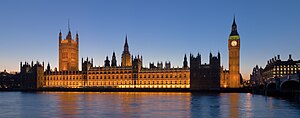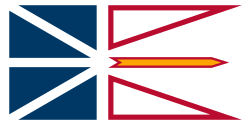
Back Portal:Politik ALS بوابة:السياسة Arabic بوابة:سياسة ARZ Портал:Политика Bulgarian প্রবেশদ্বার:রাজনীতি Bengali/Bangla Portal:Politika BS دەروازە:سیاسەت CKB Portál:Politika Czech Portal:Politik German Portal:Siyaset DIQ
| Main | Topics and categories | Tasks and projects |
The Politics portal
Politics (from Ancient Greek πολιτικά (politiká) 'affairs of the cities') is the set of activities that are associated with making decisions in groups, or other forms of power relations among individuals, such as the distribution of resources or status. The branch of social science that studies politics and government is referred to as political science.
It may be used positively in the context of a "political solution" which is compromising and non-violent, or descriptively as "the art or science of government", but also often carries a negative connotation. The concept has been defined in various ways, and different approaches have fundamentally differing views on whether it should be used extensively or in a limited way, empirically or normatively, and on whether conflict or co-operation is more essential to it.
A variety of methods are deployed in politics, which include promoting one's own political views among people, negotiation with other political subjects, making laws, and exercising internal and external force, including warfare against adversaries. Politics is exercised on a wide range of social levels, from clans and tribes of traditional societies, through modern local governments, companies and institutions up to sovereign states, to the international level.
In modern nation states, people often form political parties to represent their ideas. Members of a party often agree to take the same position on many issues and agree to support the same changes to law and the same leaders. An election is usually a competition between different parties.
A political system is a framework which defines acceptable political methods within a society. The history of political thought can be traced back to early antiquity, with seminal works such as Plato's Republic, Aristotle's Politics, Confucius's political manuscripts and Chanakya's Arthashastra. (Full article...)
Selected article
The Act of Independence of Lithuania was signed by the Council of Lithuania on 16 February 1918, proclaiming the restoration of an independent State of Lithuania, governed by democratic principles, with Vilnius as its capital. The act was signed by all twenty members of the council, chaired by Jonas Basanavičius. The act of 16 February was the end result of a series of resolutions on the issue, including one issued by the Vilnius Conference and the act of 8 January. The path to the act was long and complex because the German Empire exerted pressure on the council to form an alliance. The Council had to carefully manoeuvre between the Germans, whose troops were present in Lithuania, and the demands of the Lithuanian people. While the act's original document has been lost, its legacy continues. The laconic act is the legal basis for the existence of modern Lithuania, both during the interwar period and since 1990. The act formulated the basic constitutional principles that were and still are followed by all Constitutions of Lithuania. The act itself was a key element in the foundation of Lithuania's Act of the Re-Establishment of the State of Lithuania, adopted on 11 March 1990. Lithuania, breaking away from the Soviet Union, stressed that it was simply re-establishing the independent state that existed between the world wars and that the act never lost its legal power.
Featured picture

A campaign poster from the National Union Party during the US election of 1864, showing presidential candidate Abraham Lincoln (left) and his running-mate Andrew Johnson. The Republican Party changed its name and selected Johnson, a former Democrat, to draw support from War Democrats during the Civil War.
Selected quote
Selected biography
Ed Stelmach (born 1951) was the Premier of Alberta, Canada, from December 14, 2006 to October 7, 2011. He spent his entire pre-political adult life as a farmer, except for some time spent studying at the University of Alberta. His first foray into politics was a 1986 municipal election, when he was elected to the county council of Lamont County. A year into his term, he was appointed reeve. He continued in this position until his entry into provincial politics. In the 1993 provincial election, Stelmach was elected as the Member of the Legislative Assembly for Vegreville-Viking. A Progressive Conservative, he served in the cabinets of Ralph Klein. When Klein resigned the party's leadership in 2006, Stelmach was among the first to run to replace him. After a third place finish on the first ballot of the leadership race, he won an upset second ballot victory over former provincial treasurer Jim Dinning. Stelmach's premiership has been heavily focused on management of the province's oil reserves, especially those of the Athabasca Oil Sands. Other policy initiatives have included commencing an overhaul of the province's health governance system, a re-introduction of all-party committees to the Legislature, and the conclusion of a major labour agreement with Alberta's teachers.
Did you know (auto-generated) -

- ... that Aymara legislator Rafael Quispe's humorous style of political activism led one Bolivian parliamentarian to describe him as the "Chapulín Colorado" of the Legislative Assembly?
- ... that before entering politics, Romina Pérez worked at the Center for Legal Studies and Social Research, which "became a 'nursery' for intellectual and political cadres of the Movement for Socialism"?
- ... that the 2009 book Where Heaven and Earth Meet introduced the term "Sacred Esplanade" as a politically neutral term for the religious site in Jerusalem known as al-Haram al-Sharif or the Temple Mount?
- ... that Ken Russell went on international yo-yo tours before turning to politics?
- ... that Patricia Grace did not intend for her novel Potiki, about the impact of land development on an indigenous community, to be seen as political?
- ... that Czech television reporter and author Vladimír Škutina was arrested and imprisoned twice for his use of political satire?
More did you know...
- ...that the Japanese Farmer-Labour Party was banned just a few hours after its foundation in 1925?
- ...that Glenn Beck introduced a "Black-Robed Regiment" of pastors from various denominations during his Restoring Honor rally in 2010, and launched a news website called The Blaze three days later?
- ...that the book Targeted Killing in International Law argues support in the Western world for targeted killing increased following the September 11 attacks?
- ...that Matt Taibbi's book Griftopia has been described as a "necessary ... corrective" to the assertion that bubbles are an inevitable part of the market economy?
- ...that in the book Net.wars, author Wendy M. Grossman attributes Internet conflict in the 1990s to culture shock from an influx of users?
- ...that former California Assembly Republican Leader and California Republican Party Chair Robert W. Naylor was editor of The Stanford Daily while he was a student at Stanford University?
- ...that Caedwalla of Wessex conquered southeast England during his brief 7th century reign?
- ...that when the Tennessee Center for Policy Research, a "free-market think tank," criticized Al Gore's energy use, CNN mistakenly called the organization an environmental group?
In this month
- May 5, 2005 – A General Election in the United Kingdom sees Tony Blair's Labour government returned to office with a reduced majority of 66.
- May 14, 1948 – The Declaration of Independence of Israel is made.
- May 18, 1948 – The first Legislative Yuan of the Republic of China officially convenes in Nanking.
News and Current events
- August 11: 4 local government areas in New South Wales, Australia locked down after COVID-19 case
- August 11: Australia: AstraZeneca vaccine access expanded by Victorian government
- August 1: Australia: Victorian lockdown lifted
- July 29: Tunisia's president dismisses prime minister, suspends parliament
- July 25: Australia: Wikinews interviews Reg Kidd, mayor of the City of Orange, about COVID-19 lockdown and local government
- July 23: South Australia enters week-long lockdown to contain COVID-19 Delta variant spread
- July 21: Technological University Dublin senior lecturer Dr Lorcan Sirr speaks to Wikinews on housing market in Ireland
- July 21: Three rural councils in New South Wales, Australia enter 7-day lockdown
- July 21: Australia: Victoria lockdown extended by a week with 85 active cases recorded
- July 15: California governor signs new state budget, eligible Californians to get stimulus payments
Topics and categories
General images
Related portals
Associated Wikimedia
The following Wikimedia Foundation sister projects provide more on this subject:
-
Commons
Free media repository -
Wikibooks
Free textbooks and manuals -
Wikidata
Free knowledge base -
Wikinews
Free-content news -
Wikiquote
Collection of quotations -
Wikisource
Free-content library -
Wikiversity
Free learning tools -
Wiktionary
Dictionary and thesaurus
Sources
More portals
© MMXXIII Rich X Search. We shall prevail. All rights reserved. Rich X Search


























































